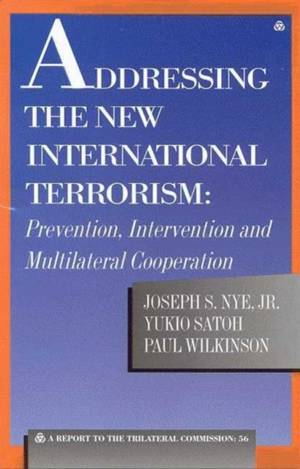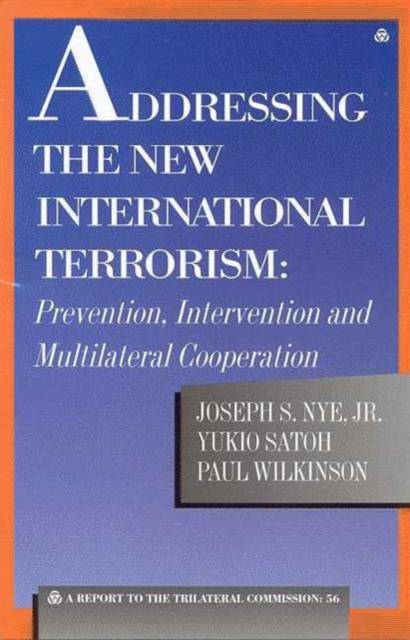
- Retrait gratuit dans votre magasin Club
- 7.000.000 titres dans notre catalogue
- Payer en toute sécurité
- Toujours un magasin près de chez vous
- Retrait gratuit dans votre magasin Club
- 7.000.000 titres dans notre catalogue
- Payer en toute sécurité
- Toujours un magasin près de chez vous
Addressing the New International Terrorism
Prevention, Intervention and Multilateral Cooperation
Joseph S Nye, Yukio Satoh, Paul WilkinsonDescription
Virtually every nation has a role in preventing international terrorism, and many have both expertise and experience to offer. This concise report concludes that the effectiveness of international counterterrorism cooperation diminishes in the face of differing national and regional perceptions of the threat and the most effective methods to address it. The authors explore those differences and a range of approaches from the perspectives of Europe, Pacific Asia, and North America. What emerges are different emphases and preferences for solutions, but a clear appreciation of the urgency for transnational cooperation. This report looks at the need to develop common definitions, reconcile differing threat assessments, compare and integrate policies, seek common interests, develop effective international institutions, protect civil liberties, involve the private sector, and discourage unilateralist solutions. The authors agree upon a series of recommendations for action, and in doing so demonstrate the effectiveness that shared antiterrorism efforts can provide.
Spécifications
Parties prenantes
- Auteur(s) :
- Editeur:
Contenu
- Nombre de pages :
- 31
- Langue:
- Anglais
- Collection :
Caractéristiques
- EAN:
- 9780930503819
- Date de parution :
- 30-05-03
- Format:
- Livre broché
- Format numérique:
- Trade paperback (VS)
- Dimensions :
- 152 mm x 229 mm
- Poids :
- 98 g







